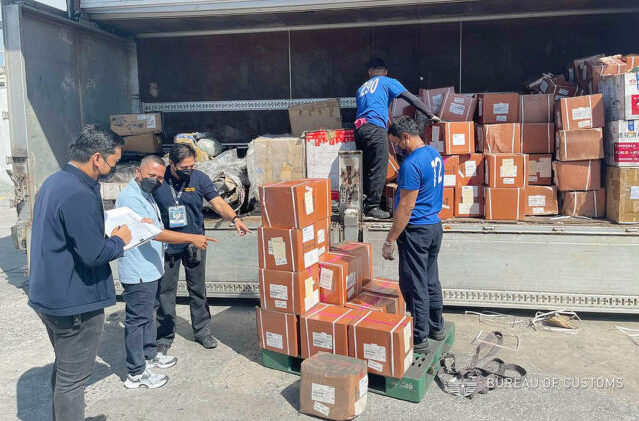
A FOOD Safety Regulatory Administration (FSRA) has been proposed that will maintain a registry of agricultural imports configures to deter smuggling.
Agriculture Secretary William D. Dar also called for strengthening border inspections to better implement the Food Safety Act.
The proposed FSRA will be tasked with enforcing the Food Safety Act, specifically to protect consumers from “trade malpractices and from substandard or hazardous products,” including smuggled agricultural goods.
“We could at least tighten institutional cooperation that allows data to be instantly accessible and the regulatory hierarchy to be defined and the procedures harmonized with those of institutions duly mandated to apprehend and sanction,” he added.
According to the law, large-scale agricultural smuggling is committed when at least P10 million worth of rice or at least P1 million worth of sugar, corn, pork, poultry, garlic, onion, carrots, fish, and cruciferous vegetables in either raw, processed, or preserved form is illegally brought into the country.
Agriculture Assistant Secretary Federico E. Laciste, Jr. has said that the Department of Agriculture (DA) estimates smuggled agri-fishery goods at P667.5 million between 2019 and 2022, of which P10 million was apprehended in 2019 and 2020.
The Bureau of Customs also conducted 542 seizure cases involving P1.99 billion worth of agricultural products since 2019.
Mr. Dar said that the department will implement other measures to counter the smuggling of agricultural goods, including the creation of a sub-task group on economic intelligence to track down smugglers, hoarders, price manipulators, and profiteers. It also plans to organize a trade office as the DA’s enforcement unit.
In 2021, the DA and the Subic Bay Metropolitan Authority signed a partnership for the establishment of the country’s first cold examination facility to implement full-scale inspections and control of goods entering via Subic Bay.
“The Food Safety Act provides for the participation of several national agencies. It would be great if DA can come into it with a more empowered role, even as we upgrade the processes of our own food safety regulatory agencies,” Mr. Dar added.
“We call upon everyone, particularly those who transact business as part of their functions at the DA regulatory agencies, to come forward if they have knowledge of any misconduct, especially of corruption, and present evidence so we can act on them with urgency,” he said. — Luisa Maria Jacinta C. Jocson














